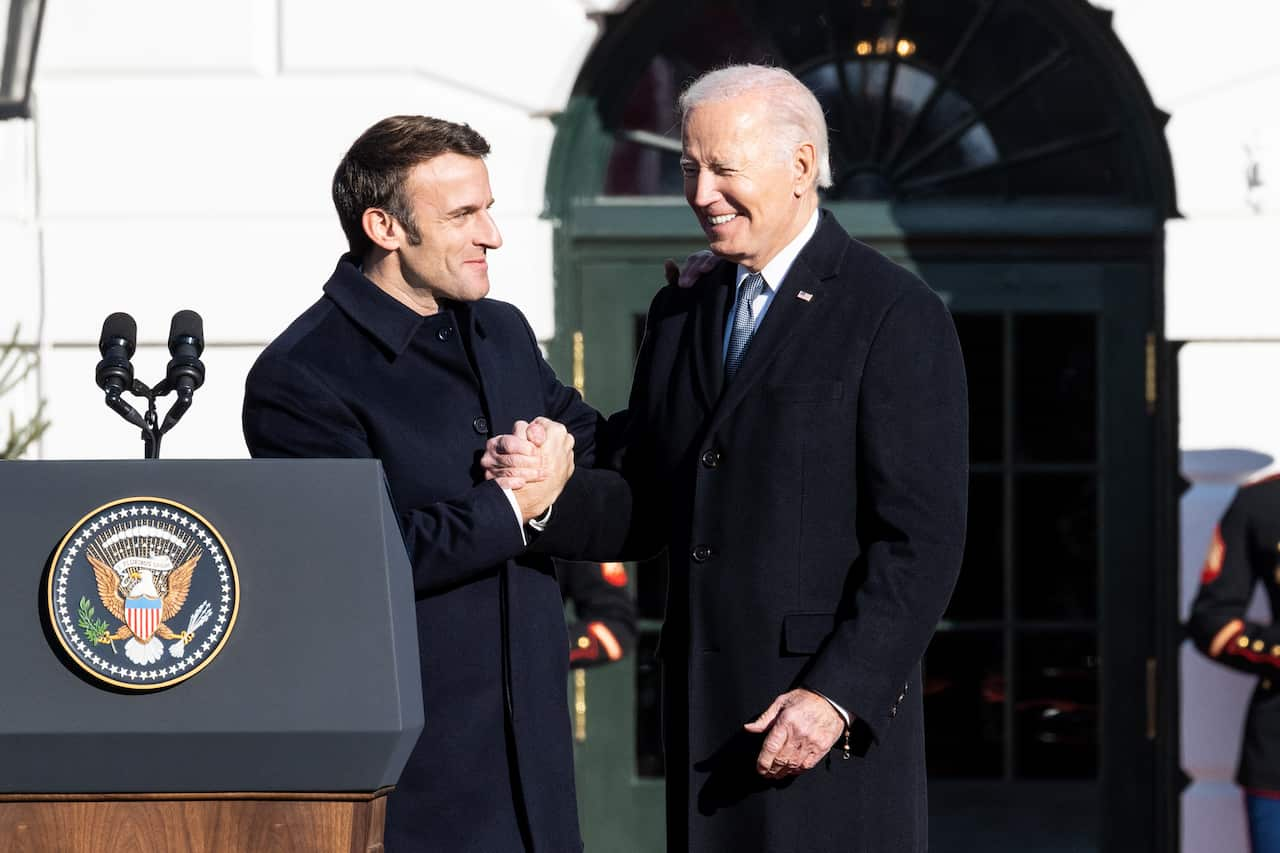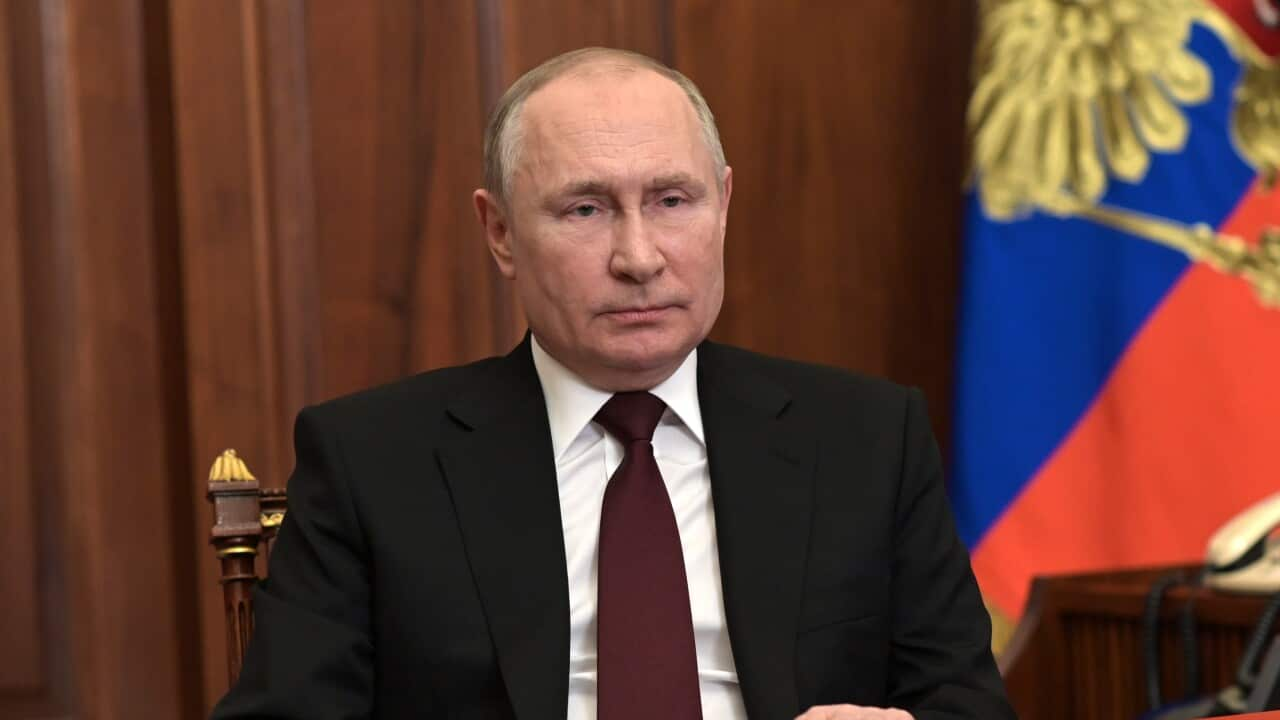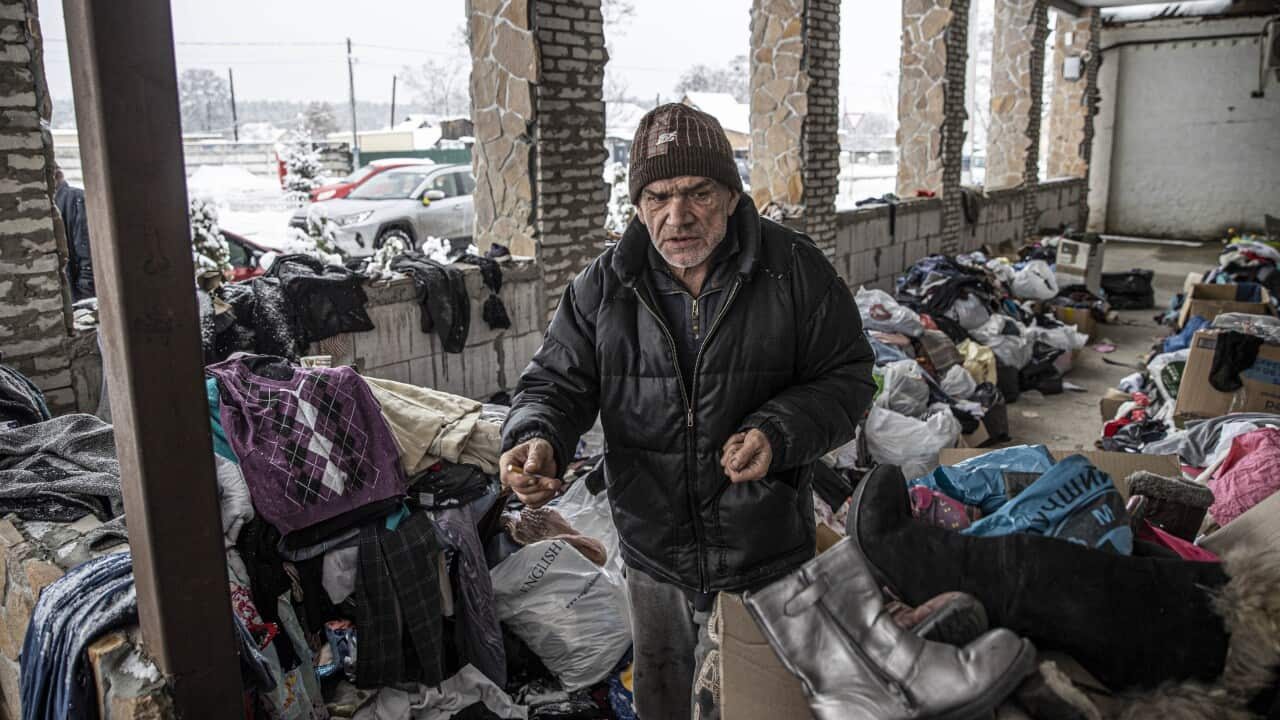Key Points
- Vladimir Putin is open to negotiations on Ukraine but the West must recognise Russia's "new territories".
- The Kremlin comments come after the US President said he would talk to Mr Putin if he were looking to end the war.
- Meanwhile, the European Union has tentatively agreed to a $60 (A$88) a barrel price cap on Russian seaborne oil.
President Vladimir Putin is open to negotiations on Ukraine but the West must recognise Russia's "new territories", the Kremlin said on Friday, a day after US President Joe Biden said he was willing to talk if Mr Putin were looking for a way to end the war.
Speaking after talks on Thursday at the White House with French President Emmanuel Macron, Mr Biden said he was ready to talk to Mr Putin "if in fact there is an interest in him deciding he's looking for a way to end the war", adding the Russian leader "hasn't done that yet".
Mr Biden has not directly spoken with Mr Putin since Russia invaded Ukraine on 24 February. In March, Mr Biden branded Mr Putin a "butcher" who "cannot stay in power".

President Emmanuel Macron of France stands with US President Joe Biden at the White House. Source: AAP / Michael Brochstein/Sipa USA
Russia has previously said it is open to peace talks. Ukraine and allies fear any ceasefire without a total withdraw would allow Russian forces to regroup in preparation for further attacks.
Mr Peskov said Russia will not pull out of Ukraine.
He added that the search for ways to end the war was hindered by the US refusal to recognise territory in Ukraine that Russia has annexed.
Mr Putin has proclaimed the southern region of Kherson and three other partly occupied regions of Ukraine to be part of Russia, in a move condemned as illegal by most countries.
With the war in its tenth month and winter tightening its grip, Western countries are trying to boost aid for Ukraine as it reels from Russian missile and drone attacks on key energy infrastructure that have left millions without heating, electricity and water.
Ukraine has driven Russian troops from swathes of occupied territory in recent weeks, including areas Russia claims to have annexed.
Fighting is raging in the east Ukraine, with the town of Bakhmut the main target of Moscow's artillery attacks, while Russian forces in Kherson and the Zaporizhzhia region remain on the defensive, Ukraine's General Staff said in its latest battlefield update.
In a bid to reduce the money available for Moscow's war effort, the European Union has tentatively agreed to a $60 (A$88) a barrel price cap on Russian seaborne oil, diplomats said. The measure will need to be approved by all EU governments in a written procedure by Friday.
Western line on Ukraine is 'destructive,' Kremlin says
Mr Putin told German Chancellor Olaf Scholz in a phone call on Friday that the Western line on Ukraine was "destructive" and urged Berlin to rethink its approach, the Kremlin said.
In Berlin's readout on the call, Mr Scholz's spokesperson said the chancellor had condemned Russian air strikes against civilian infrastructure and called for a diplomatic solution to the war "including a withdrawal of Russian troops".
Separately, the German government confirmed it was preparing to deliver seven Gepard tanks to Ukraine, adding to the 30 air-defence tanks already being used to fight Russian forces.
Mr Putin has said he has no regrets about launching what he calls a "special military operation" to disarm and "denazify" Ukraine. He casts the war as a watershed moment when Russia finally stood up to an arrogant West after decades of humiliation following the 1991 fall of the Soviet Union.
Ukraine and the West say Mr Putin has no justification for what they cast as an imperial-style war of occupation in which thousands of civilians have been killed. Kyiv says it will fight until the last Russian soldier is ejected from its territory.
Share



